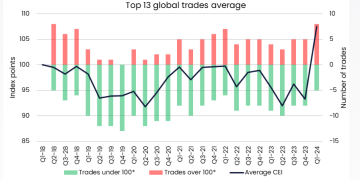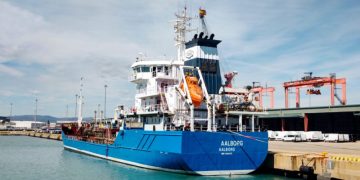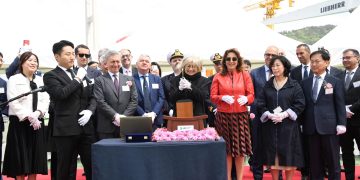MAN Energy Solutions announced that its MAN 175D engine is formally approved for operation on biofuels, effective immediately.
This applies to all standard biofuels such as HVO (Hydrotreated Vegetable Oil) and FAME (Fatty Acid Methyl Ester) fuels up to a content of 100%. Crucially, the engine itself does not require any technical adjustments, following the announcement. In three variants of 12, 16 and 20 cylinders, the engine is available with an output ranging from 1,500 to 4,400 Kilowatts.
Types of biofuels relevant for maritime shipping:
- FAME (Fatty acid methyl ester) is produced from vegetable oils, animal fats or waste cooking oils by transesterification, where various oils (triglycerides) are converted to methyl esters. This is the most widely available type of biodiesel in the industry and is often blended with regular marine diesel. International standards: ISO 8217:2017, EN 14214, ASTM D6751, EN 590
- BTL (Biomass to liquid) fuels are synthetic fuels that are produced from biomass by means of thermo-chemical conversion using the Fischer-Tropsch process or the methanolto-gasoline process. The final product can be fuels that are chemically different from conventional fuels such as gasoline or diesel but can also be used in diesel engines. International standards: EN 16709, EN 15940
The ability to reduce emissions is determined by the feedstock, production process, and supply chain.
Due to its state-of-the-art design, just a few engine components are subject to slightly higher wear, depending on the amount of biofuel and the duration of operation. For uninterrupted engine operation, only minor adaptations of the fuel-treatment system are necessary.
… said Florian Keiler, Head of High-Speed Sales, MAN Energy Solutions
Further on the subject, HMM announced in late April that it has signed a Memorandum of Understanding (MoU) with GS Caltex to secure marine biofuels in order to conduct the trial use of the fuels on its three 24,000 TEU container ships in the second half of this year.





























































